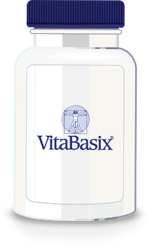Melatonin is mainly produced in the pineal gland. From there it is released into the bloodstream in a specific daily rhythm and thus “informs” the entire body about the circadian (sleep-wake) phases. Since daylight inhibits melatonin production, melatonin is mainly produced during the night. In addition to the 24-hour circadian rhythm, there is also an annual rhythm based on the different light conditions during the seasons. As a result, melatonin is produced and released into the blood over a longer period of time in winter than in summer. In some animal species, this causes, among other things, the change in coat color, hibernation and readiness to mate. Certain foods also produce melatonin. It is found in foods such as milk, cherries, walnuts, bananas, eggs and dark chocolate. Certain nightshade plants such as tomatoes also contain a lot of melatonin.
Humans have hardly any melatonin day-night rhythm until the 3rd month of life. After that, the nocturnal serum levels rise and the circadian rhythm gradually develops. This is characterized by melatonin levels rising rapidly during evening twilight, then remaining at a relatively high level throughout the night, only to drop rapidly in the early morning. The highest melatonin concentrations are reached between the 1st and 3rd year of life, after which production steadily decreases. Consequently, older people no longer have as high melatonin levels at night as young people, in whom an approximately 8-10-fold increase in melatonin levels is observed during the night. Furthermore, in older people, nocturnal melatonin levels often begin to rise late at night, which can contribute to their difficulty falling asleep. At the same time, nocturnal melatonin levels drop back down to daytime levels too early, which can lead to early waking. Thus, older adults reach melatonin levels of only a maximum of 3 times the daytime levels and this only for a short time. This small difference in day-night levels in older people is often not enough to accurately communicate the change between day and night to the body and to control the internal clock.
Sleep: Discovered in 1958 by Dr Aaron Lerner, melatonin has been the subject of intensive research since the early 1980s. Melatonin has been shown to help individuals fall asleep, increase sleep quality and promote restful sleep throughout the night. Furthermore, it is not addictive and habituation has not been observed to date. However, some medications, including certain sleeping pills, can suppress your own production of melatonin.
Jet lag: Melatonin has been shown to help reset the postponement of a disrupted sleep-wake cycle that is common on international flights and among shift workers. This can help suppress the symptoms of jet lag and speed up the body’s return to a normal sleep-wake cycle.
If the body does not produce enough melatonin or if the body’s own production is disturbed, the hormone can be supplemented through special food supplements. A pulsatile release that ensures that melatonin is provided to the body for six to eight hours can enable restful sleep throughout the night phase without morning hang-over.



 Chronobrands
Chronobrands


Reviews
There are no reviews yet.